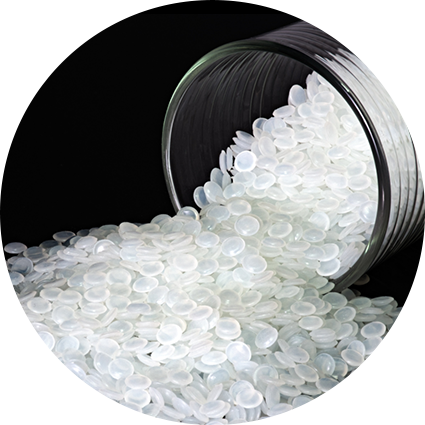The Fatigue-resistant PP+ST polypropylene resin (SWJ/M-3501) represents a breakthrough in modern material science. Developed as a bio-based, eco-friendly alternative to traditional plastics, this resin combines the strength of polypropylene (PP) with renewable starch-based components. The result is a high-performance material that not only reduces environmental pollution but also maintains exceptional durability and mechanical stability. With growing global demand for sustainable materials, SWJ/M-3501 is quickly becoming a preferred choice across packaging, automotive, home appliance, and electronic industries.
How Does Fatigue-Resistant PP+ST Polypropylene Resin Achieve Both Strength and Sustainability?
SWJ/M-3501’s innovative formulation blends starch—a renewable and biodegradable ingredient—with high-quality polypropylene, significantly lowering the carbon footprint compared to conventional resins. Despite its eco-friendly composition, it retains excellent mechanical strength, flexibility, and fatigue resistance, ensuring reliable performance in demanding environments.
The material’s fatigue resistance allows it to endure repeated stress and load cycles without deformation or cracking, while its stress-cracking resistance ensures long-term dimensional stability. These characteristics make it ideal for applications that require both lightweight design and durability, offering manufacturers a balanced solution between sustainability and performance.
Why Is SWJ/M-3501 Ideal for Automotive and Packaging Applications?
In the automotive sector, the use of fatigue-resistant PP+ST polypropylene resin contributes to lightweight vehicle design, improving fuel efficiency and reducing emissions. It is suitable for interior trim components, exterior decorative panels, and other structural elements that require both mechanical strength and aesthetic appeal.
In the packaging industry, SWJ/M-3501 serves as a sustainable replacement for traditional petroleum-based plastics. Its bio-based composition minimizes environmental burden while maintaining impact resistance and flexibility, ensuring product protection during transport and storage. It is particularly suitable for food packaging, disposable containers, and eco-friendly wrapping materials.
How Does It Benefit the Home Appliance and Electronics Industry?
In the home appliance industry, fatigue-resistant PP+ST polypropylene resin is used for outer housings, handles, and internal components of products such as washing machines, air conditioners, and vacuum cleaners. Its high fatigue and crack resistance ensure long-term structural integrity, even under frequent operational stress.
In the electronics and electrical field, the material provides excellent insulation, heat resistance, and stability, making it an ideal choice for both internal circuit components and external casings. Its ability to resist mechanical fatigue under constant use ensures extended lifespan and enhanced product reliability.
Comparison of Fatigue-Resistant PP+ST Polypropylene Resin with Conventional Materials
| Property |
Fatigue-Resistant PP+ST Polypropylene Resin (SWJ/M-3501) |
Conventional Polypropylene (PP) |
Traditional Plastic (PE or PVC) |
| Raw Material Source |
Partially bio-based (starch + PP blend) |
Fully petroleum-based |
Fully petroleum-based |
| Environmental Impact |
Reduced carbon footprint, recyclable |
Moderate carbon footprint |
High carbon footprint |
| Fatigue Resistance |
Excellent |
Good |
Poor |
| Stress Cracking Resistance |
High |
Moderate |
Low |
| Lightweight Property |
Superior |
Good |
Moderate |
| Chemical Stability |
Excellent |
Excellent |
Moderate |
| Heat Resistance |
High |
High |
Medium |
| Applications |
Automotive, packaging, electronics, home appliances |
General-purpose plastics |
Limited industrial use |
| Cost Efficiency |
High value-performance ratio |
Moderate |
Low cost, lower durability |
Why Choose Fatigue-Resistant PP+ST Polypropylene Resin for Your Manufacturing Needs?
Choosing SWJ/M-3501 is not only a step toward greener manufacturing, but also a strategic decision for achieving long-term performance and cost efficiency. Its combination of renewable ingredients, durability, and adaptability positions it as a top-tier material for companies pursuing both environmental responsibility and high-quality production outcomes.
With the world shifting toward sustainable manufacturing solutions, fatigue-resistant PP+ST polypropylene resin demonstrates how modern material science can meet eco-friendly goals without compromising mechanical excellence.










